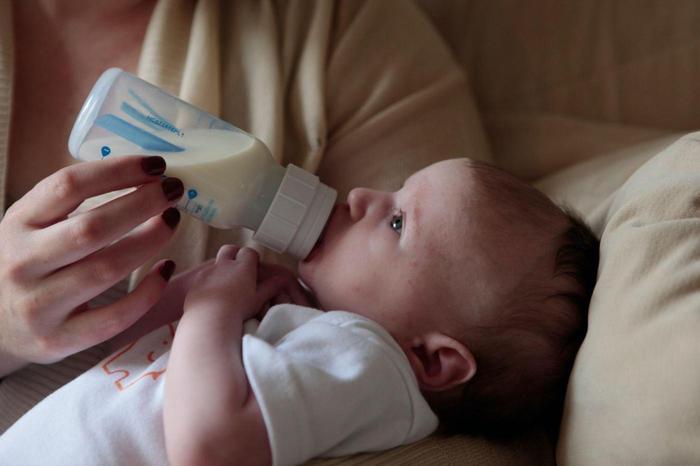This quasi-breastmilk could change infant feeding
Breastfeeding your child can be very complicated today for some women, so much so that many opt for powdered preparations made from bovine milk. But these powders can't do as well as breast milk, the recipe of which has been meticulously refined over millennia of human evolution. Therefore, science has been actively searching for the best possible substitute for breast milk for years. BIOMILQ, a biology laboratory affiliated with the University of California, has just offered what looks like the most successful solution today: cultured “breast” milk, produced outside the human body.
One can legitimately wonder what is innovative in this concept. After all, it's all about milk, right? Think again., “Human milk is immensely complex, both in terms of composition and structure,” says Dr. Jennifer Smilowitz, who worked on the project. It is not a simple mixture, but indeed an entire biological system, with its own dynamics.
Milk, an unsuspected jewel of complexity
It is infinitely more subtle than the simple sum of its components; therefore, it is also very complex to reproduce. “Until now, it was impossible for us to replicate it outside the body of the parent,” adds the researcher. The team looked for another approach, rather than struggling to make an approximate copy of this biological treasure themselves. This milk should be produced in such a way as to "maintain the integrity of its incredible evolutionary origins", explains the research team, which has therefore decided to delegate this task to cells grown in the laboratory.

Unfortunately, the press release published by the company is a little thin on technical details and does not offer a research paper. However, they describe very encouraging results. After an exhaustive analysis, their product would contain a set of proteins, carbohydrates, fatty acids and other lipids very close to those expected to be found in breast milk.
But where this product scores even more points is on the other milk functions. We know from several studies that breast milk has a role that goes beyond nutrition. And unlike powdered milks, BIOMILQ would thus contain a family of proteins called HMOs which, among other things, promote the development of immune defenses or even participate in the acquisition of language.
Not exactly breast milk
It is not a carbon copy of breast milk, however, the researchers insist. As mentioned above, milk is a dynamic and delicate system that can vary depending on conditions. “Hormonal changes, skin-to-skin contact, and the environment all affect milk,”, explains the research team. Since it is produced outside the body, in a sterile environment, their BIOMILQ will not be able to reproduce this fine dynamic. But it does have an advantage nonetheless. The milk produced will be free of any contaminants present in breast milk: alcohol, drugs, medications, allergens, by-products of a pathology, etc.
From an ecological point of view, this milk also has a considerable advantage over powdered formulas. Several studies have demonstrated their significant ecological impact. According to this research paper, nearly ⅔ of newborns are now fed with these preparations. There are therefore millions of hungry mouths who depend directly on the dairy industry (and therefore on cattle farming, with the ecological consequences that we know), as well as on the plastics industry. Admittedly, this is an impact that remains marginal compared to that of other sectors, but it is nevertheless real.
BIOMILQ should now start marketing its product. It remains to be seen whether it will find its audience, and whether this will pave the way for competition in this niche sector.








